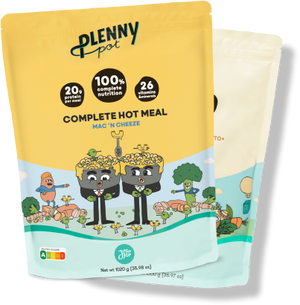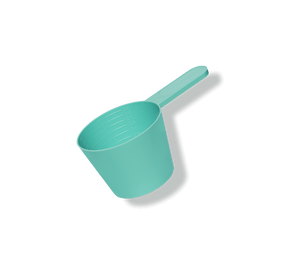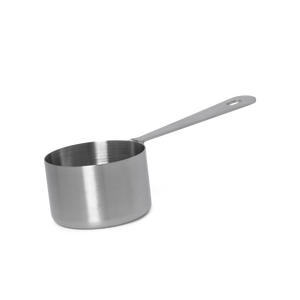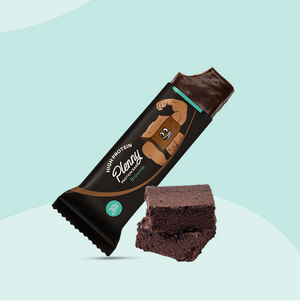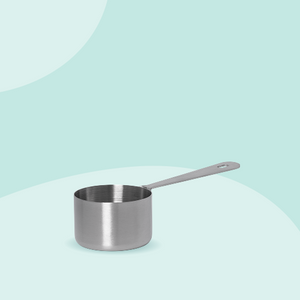At first glance, you may think that weight gain is simpler than losing weight — eat (a lot) more and you’re done.
Healthy weight gain is actually difficult, especially when it comes to staying on track and eating the right things to fuel up.
Have you ever tried starting the engine of your car using apple juice instead of gasoline? Yeah, that won’t get you very far. This principle also applies to which nutrients and foods you put into your body.

In this guide, we share the exact steps to healthy weight gain. As in, gain quality body mass without getting sick or obese.
How do I gain weight?
Similar to losing weight, it all depends on your energy balance. If you want to add on some weight you will need a positive energy balance. You need to consume more daily calories than you burn.
You first calculate how many calories you actually burn. Do this with a calculator or with the help of a fitness tracker. How many calories your body requires depends on a few things: Your age, gender, weight, activity level… to name a few!
How many calories do I need per day?
Once you have the figures you need to create a caloric surplus.
Let’s say you require 2000 kcal a day.
You are then better off starting by adding 300-500 extra calories per day. See how well you do for two weeks.
You can always add calories to speed things up, depending on how your body reacts.
Does it matter what I eat, as long as I eat enough?
Yes, it does if you would like to gain quality body weight in a healthy way! Binging on sweet pastries and fatty junk food adds more calories, but you’ll be missing out on essential nutrients.
In addition, you risk adding belly fat instead of muscle mass and naturally occurring body fat (subcutaneous fat). Did you know that even normal-weight people can suffer from type 2 diabetes, heart disease and other illnesses normally associated with obesity?
How to gain healthy weight
No matter what you do, your body will only be healthy when it gets all the required nutrients!
You need macronutrients like protein, fat, and carbohydrates. But vitamins and minerals are also essential. A balanced diet with the right nutrients should always be the foundation of a healthy lifestyle.

Protein is an important building block. It contributes to lean body mass (muscle mass) and will help you build muscle rather than excess fat. Good protein sources are:
- Legumes and pulses.
- Nuts and seeds.
- Organic, happy eggs and dairy.
- High-quality protein powder (soy or pea protein).
Fruits and vegetables, whole grains and healthy fat from nuts and seeds should be integrated into every diet.
At the end of this article, you can read more about structuring meals in our ultimate checklist for healthy weight gain!
Before we talk about exercise, let’s delve deeper into some excellent food options and increasing food intake.
What are some weight gain foods?
Gaining weight means eating more. Which can obviously be a challenge sometimes!
Therefore, create meals that are energy-dense but that don’t stuff you too quickly. Discomfort from digestion is definitely not the goal. Besides this, you don’t want to risk missing essential nutrients by simply going for high-calorie foods.
Let’s give you some ideas for healthy and nutrient/energy dense meals and ingredients:
- Power smoothies: Combine oats, fruits like bananas and berries, nut butter, seeds and a liquid of your choice. You can add extras like protein powder or Plenny Shake powder. Cinnamon, cocoa or a shot of espresso will give you so many more ways to variate the flavor!
- One-pot meals/stew: These are easy to cook. Stews are meals where you basically throw all desired ingredients into a pot and let it cook in one go. Combine whole grains (like brown rice), legumes (chickpeas or other beans) and vegetables with broth and 1-2 tablespoons of good quality vegetable oil. You can always add other protein sources, extra fat (avocado, seeds or nuts) and fresh vegetables after it is all cooked. A classic chili is a great example too!
- Power bars/bites: Think of wholesome cereal bars or make them yourself! Combine oats, nut butter, blended dates, more nuts, dried fruits (like cranberries) and even pieces of dark chocolate, depending on what you like. Blend it all to create a thick dough that is soft enough to form bars or little balls. Or press the dough into a shallow dish and cut it up later. You don’t even have to bake them. An hour in the freezer will do it too!
You can also choose healthy meal bars like Plenny Bars. These contain everything your body needs, including the essential vitamins and minerals.
Weight gain exercise
What about exercise? Too much cardio might actually make it harder to gain weight, if you’re burning all the calories you’ve consumed!
If your objective is to gain muscle mass, regular strength training will do the trick. This helps to convert the consumed calories and protein into (mainly) lean mass, instead of fat.

Ask a certified trainer for help to get you started. That way you won’t waste time and won’t risk exercise-related injuries.
Besides this, regular resistance exercises could also reduce your risk of suffering from age related muscle loss (sarcopenia) and osteoporosis.
The ultimate weight gain checklist
Don’t go crazy thinking you have to implement everything all at once! Get used to doing one thing at a time and add more as you get comfortable with the changes.
Do yourself a favor and document the implementations you make - that way you are creating your own personal plan you can look back into later on.
To make this as easy as possible for you we have created this list. We love lists (and hope you do too by now).
- Calculate your TDEE using this calculator. This is your baseline regarding calorie intake!
- Consume 300-500 kcal more than you burn (more than your TDEE) per day. You can increase or decrease this surplus over time, depending on how fast you would like to experience results!
- Eat regularly and don’t skip meals. Aim for three meals a day and add snacks whenever possible or you feel like it.
- Increase your protein intake. Aim for 1,5-2g per kg bodyweight.
- Get enough sleep. Your body requires rest to build new cells and convert the energy into lean body mass effectively. Sleep deprivation tends to get your habits out of balance and may manipulate your hard work. See if you can get 7-8 hours per night!
- Choose energy and nutrient dense foods such as nuts, seeds and oats. Especially nut butters are great nutrient and calorie boosters and can be added to pretty much any meal.
- Add liquid meals to increase your calories and protein more easily. Two scoops of our Plenny Shake already add up to 400 kcal! Get creative with these recipes. Cheers!
- Exercise smartly. Choose weight training over hours of cardio. Start out training twice a week and see how it goes! Don’t hesitate to ask a personal trainer for advice and even a plan. Safety first!
- Plan ahead. Prepare your meals and pack your bags for work or school ahead of time so you don’t end up empty handed when it’s time to eat! Aim for planning at least 2-3 days ahead! It works like magic and will also help with your weekly grocery shopping.
- Go by the 80:20 principle. Focus on a diet and lifestyle that meets all your health requirements by at least 80%. As long as you are getting what you need on a daily basis, you will always still have room (20%) for donuts or whatever you feel like enjoying! A successful approach is a mindset focussing on doing more of what’s good for you, instead of wasting too many thoughts on the things to avoid.
All good things take time. Your body is a wonderful biological miracle, so be kind and patient. Adjustments can always be made with time. Physiological changes are exciting and teach us so many lessons. Enjoy the ride!

 Everything You Need In One Meal
Everything You Need In One Meal
 Stay Full For 3-5 Hours
Stay Full For 3-5 Hours





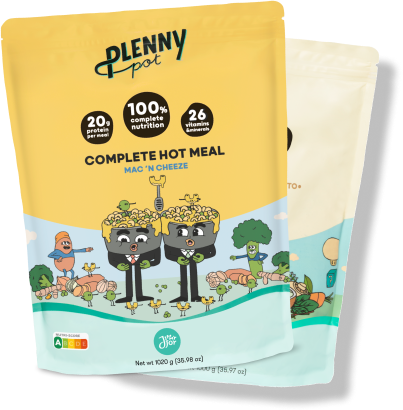

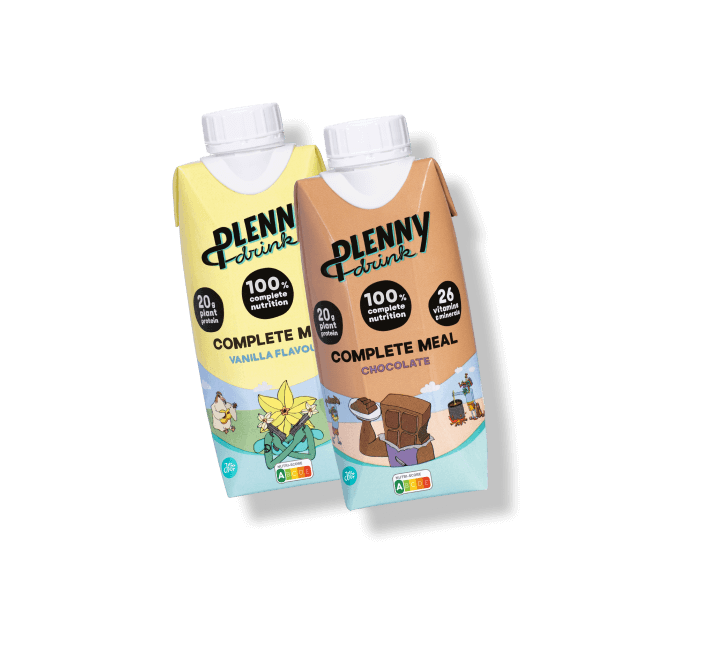
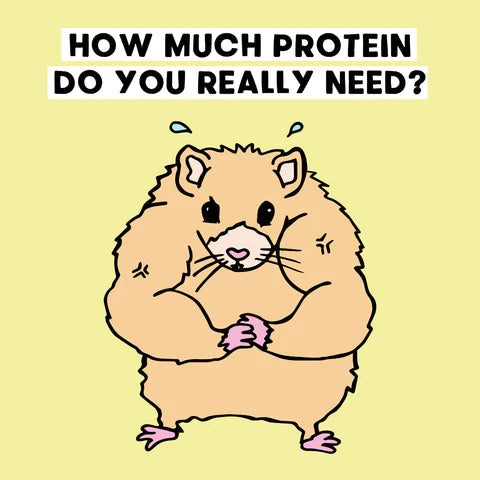








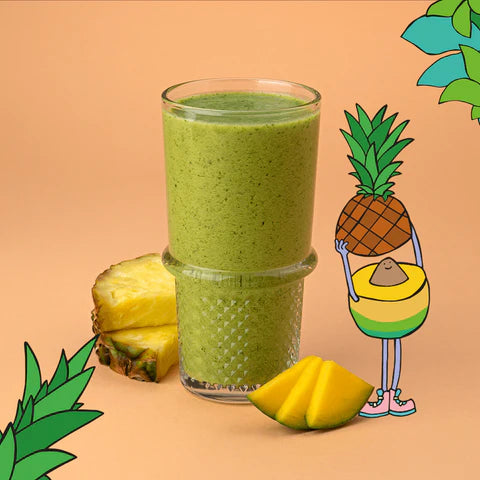


 Product added to cart
Product added to cart



